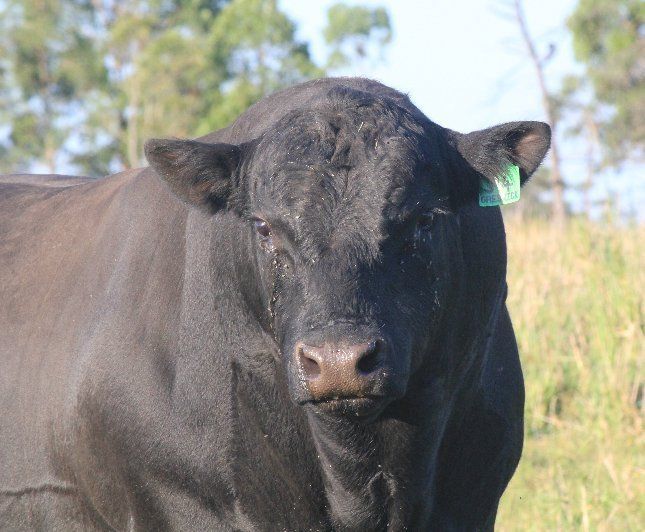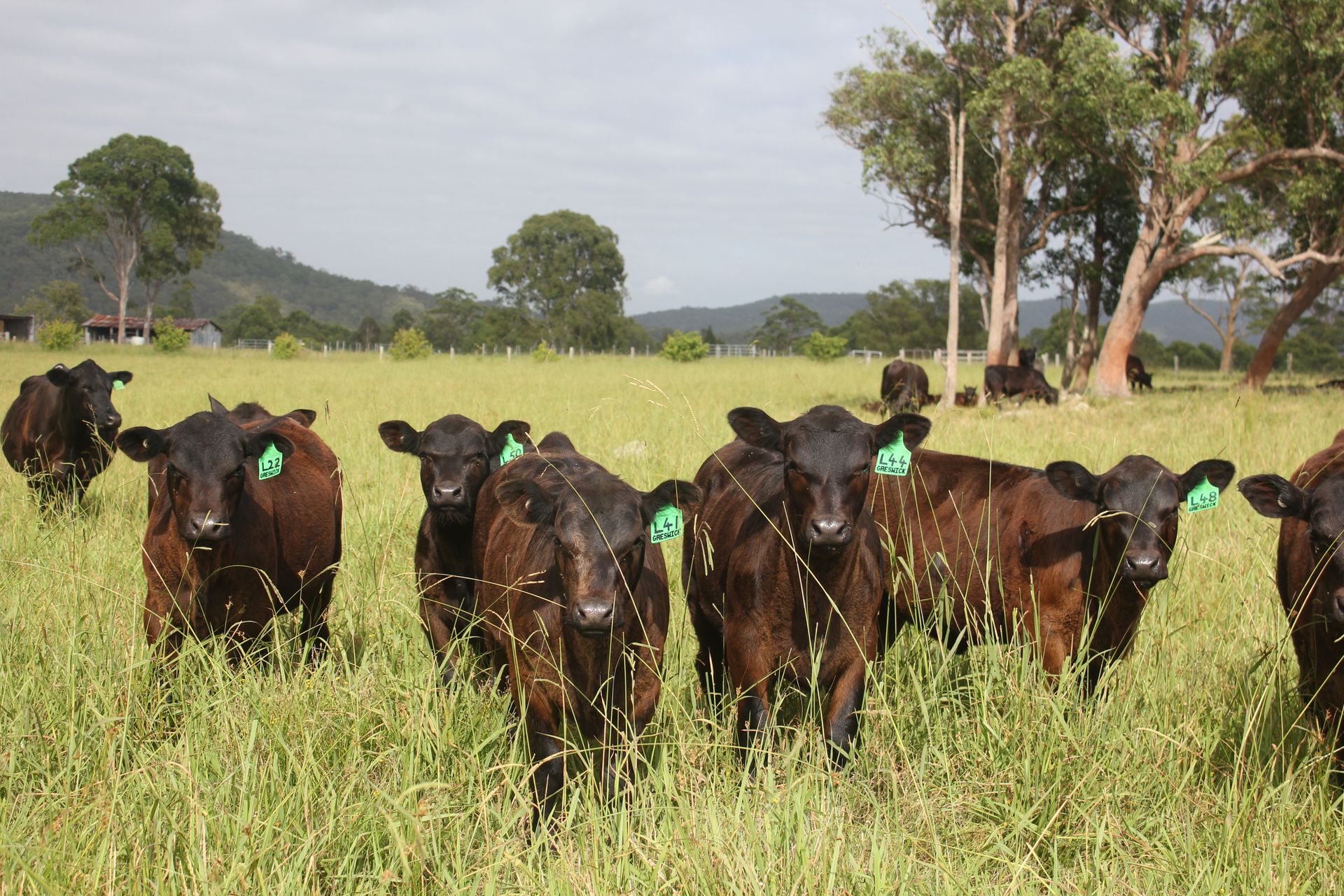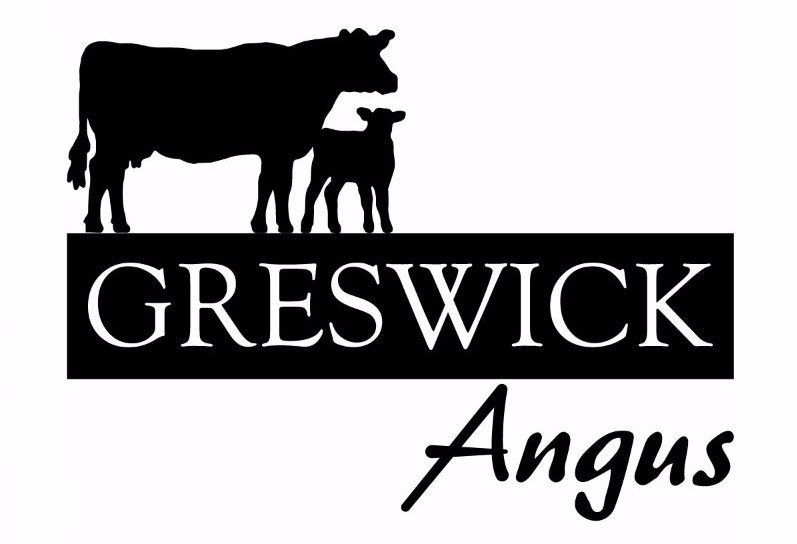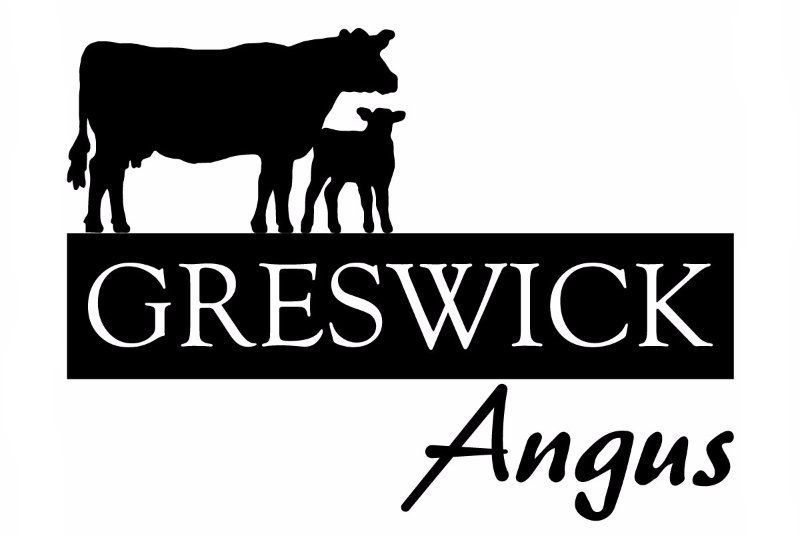Buyers Info
BULL BUYER'S INFORMATION
Structural assessment & fertility
Greswick Angus places a high degree of importance on the structural soundness of bulls to ensure a long and effective working life.
All bulls have been independently assessed as being satisfactory for the purpose of breeding and are ready for immediate use. A comprehensive Bull Breeding Soundness Evaluation (BBSE) is conducted by an accredited veterinarian. This includes a physical examination of structure and an assessment of fertility as prescribed under the industry standards of the Australian Association of Cattle Veterinarians.
Physical examination
Bulls have been assessed as being structurally sound via an objective visual inspection of their overall structure. This includes an appraisal of the eyes; teeth and jaws; feet; front and rear leg structure; ability to walk and run; sheath and testes; and general condition. Bulls must be functionally sound to seek and serve breeding females.
Buyers Info

Bull fertility
A routine bull breeding evaluation includes an assessment of reproductive soundness by:
- internal examination and palpation of the reproductive organs
- external examination and palpation of testicle consistency
- measurement of scrotal size
- assessment of semen quality via a crush side microscopic examination for motility morphology
Bulls must have normal sperm to achieve satisfactory conception rates.
Temperament
Greswick Angus places a high degree of emphasis on docility and ensures this is maintained through attention to stock handling and genetic selection. Only bulls of sound temperament reach 2 years of age for sale. Bulls are regularly strip grazed on high-quality pasture and are familiar with people being in the paddock. Under normal circumstances, Greswick Angus bulls are quiet to handle in both the paddock and yards. But remember there are inherent risks associated with any cattle handling and behavioural changes can occur unpredictably.

Breeding guarantee
Greswick Angus guarantee all bulls to be fertile and capable of natural service for 6 months from the date of sale (Warranty Period). If a bull becomes infertile or incapable of service, provided it is not caused by injury, stress or disease suffered since leaving Greswick Angus, they will endeavour to supply a satisfactory replacement bull if available; or grant a full credit (less any salvage value) towards the purchase of a replacement bull from Greswick Angus. A statutory declaration from the purchaser and a veterinary report must be lodged before the warranty period has expired. Greswick Angus has no liability (including liability in negligence) to any person for any loss and damage consequential or otherwise suffered or incurred by that person arising from the sale of livestock to the purchaser. Normal care needs to be taken, as animals cannot be replaced that are injured or die for any reason.
Managing your new bull
When a new bull is joined to cows, it is important to monitor him throughout the joining period, especially during the first 3 weeks. Ensure he is walking freely and penis appears normal. Early detection of any problems during this period can save considerable expense.
Angus Society registration
Many of Greswick Angus bulls are performance recorded and registered with the Angus Society of Australia. If you would like to have the ownership transferred within the Angus Society register, please contact us for further details. Transfer of animals is only a requirement of the Angus Society of Australia and applies to members only. It does not interfere with the lawful ownership of any bull.
The Angus Society of Australia requires DNA paternity verification if a bull is to be used to sire calves for registration in the Society’s Herd Book Register, Angus Performance Register or Red Angus Register. If you intend to register calves with the Society, please contact us to discuss the requirements for testing before bulls are used for breeding.
Animal ID & NLIS Database transfers
Each bull has a white NLIS tag inserted in the right ear to meet the requirements of the National Livestock Identification Scheme within NSW. Upon delivery and receipt of your Property Identification Code (PIC number) we will affect the transfer of the electronic identification associated with each bull within the NLIS database to your PIC.
Each bull has on the near side, a green coloured ear tag with the bull's identification; year letter and number. This has been used as a visual management aid to individually identify the animal within the herd since birth.
Livestock production quality assurance
Greswick Angus is a supporter of livestock production assurance programs and all Greswick Angus farm procedures follow recommended animal husbandry guidelines. A National Vendor Declaration (NVD form) will be issued upon delivery of your new bull.
Livestock treatments
Each bull has had regular preventative health treatments including annual 7 in 1 vaccinations, Vibriosis vaccination, Pestivirus (BVD) vaccination, trace mineral supplementation and regular drenching. We recommend that you continue annual vaccinations and drenching.
The Greswick Angus stud herd has been sampled for the incidence of Pestivirus exposure and a whole herd vaccination program with Pestigard has been implemented. All bulls have had hair samples analysed for the presence of Pestivirus and found to be negative. This means that your bull is not a carrier of the virus and is not a persistently infected animal.

DNA testing for genetic conditions
The Angus Society of Australia has released information to members relating to previously undiagnosed recessive gene disorders known as Arthrogryposis Multiplex (AM) or Curly Calf Syndrome, Neuropathic Hydrocephalus (NH), Congenital Contractual Arachnodactyly (CA) or Fawn Calf Syndrome and more recently Developmental Duplication (DD). AM, NH, CA & DD are a result of a recessive gene and will only appear when you get two copies of the defective gene in the one animal, which then gives expression to the flaw. Humans not unlike cattle carry copies of undesirable recessive genes and genetic disorders appear in all breeds of livestock.
Extensive DNA testing has been undertaken on all leading artificial insemination sires commonly used within the Angus breed and traced to specific bloodlines. Greswick Angus DNA tested all registered animals related by pedigree to suspected carriers in order to ascertain the likelihood of carrier status within the herd. Only a handful of females were identified and these were later culled from any seedstock production duties. Additionally, only AM, NH, CA & DD free sires are used in any breeding decisions to ensure there is no further replication of these genes.
The DNA testing undertaken at Greswick Angus provides the highest level of quality assurance available to ensure that all bulls offered for sale are not known carriers of these recessive genes and will therefore pose no risk to producers herds. This is represented in the sale summaries as either AMF, NHF, CAF, DDF where information has been obtained either by direct DNA testing; or AMFU, NHFU, CAFU, DDFU where animals are expected to be free, based on pedigree analysis.
Management of these genetic conditions by commercial producers is easily achieved by maintaining genetic diversity within the herd and selecting registered Angus bulls from proactive seedstock producers with quality assurance programs such as those implemented at Greswick Angus. Unregistered bulls with unknown genetic background pose the greatest risk to the commercial sector.

